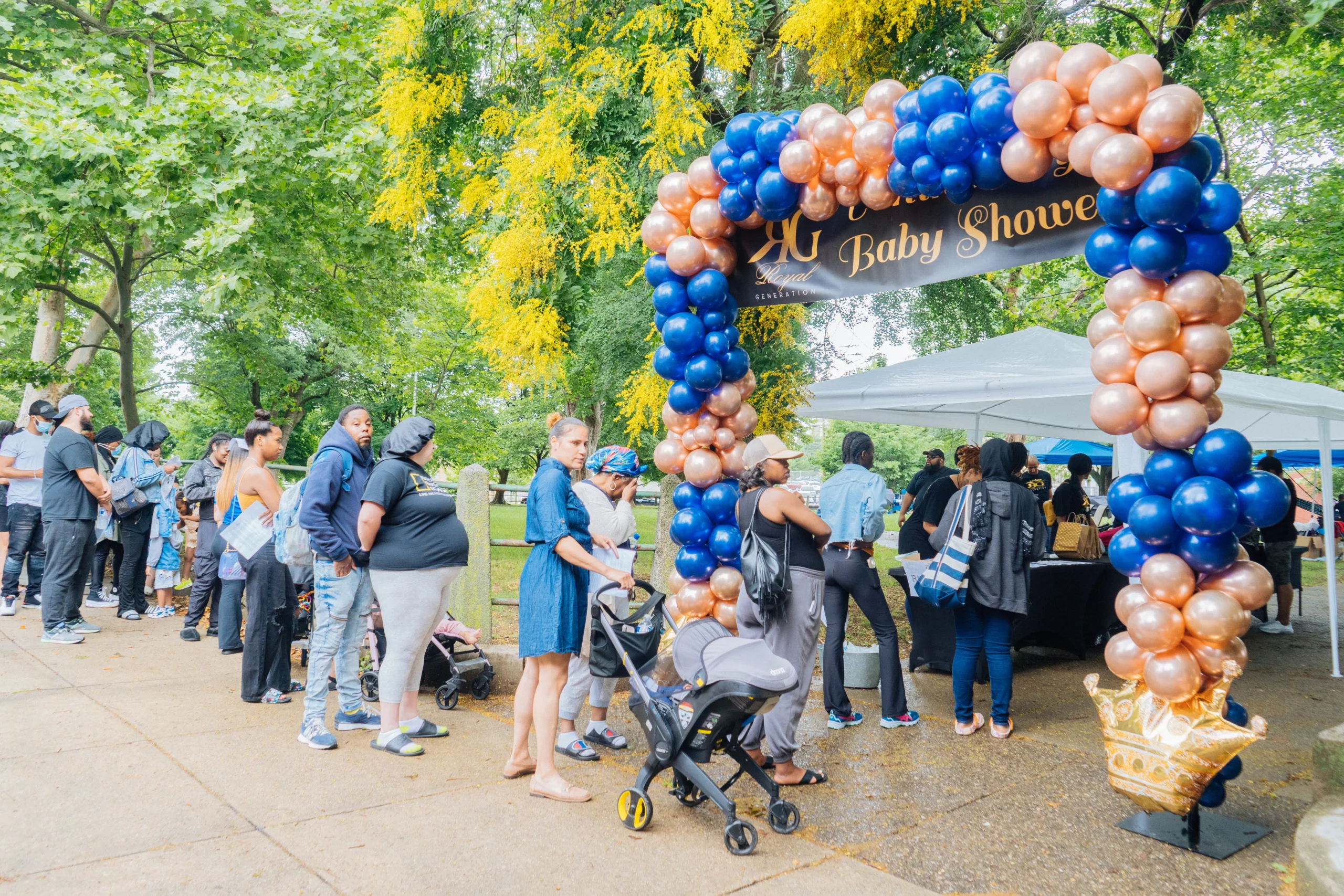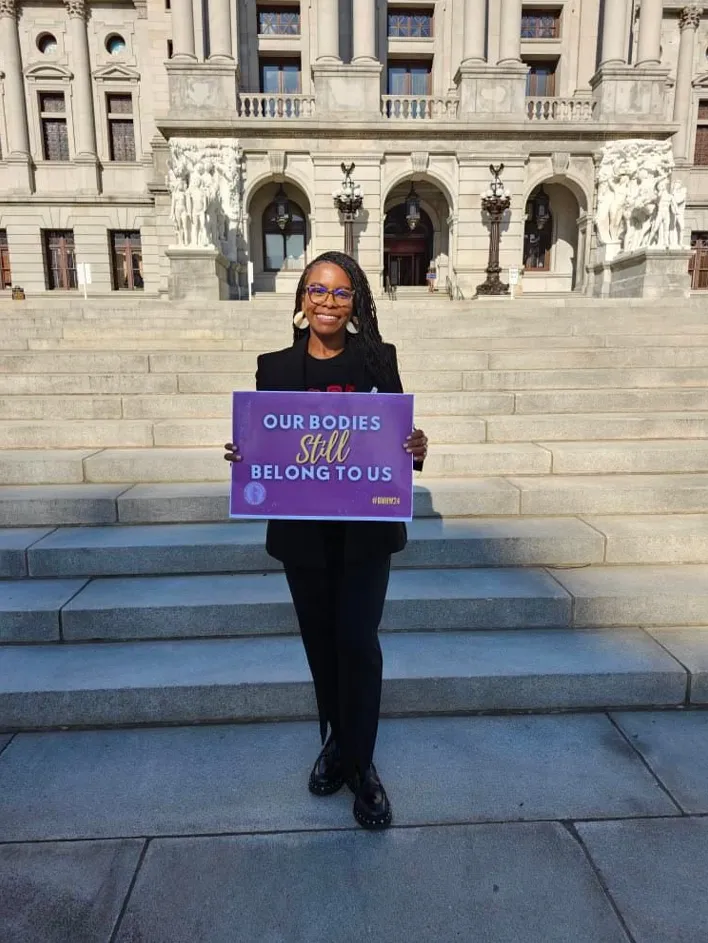Programs

Royal Generation Community Baby Shower
Philadelphia is the poorest of the nation’s ten largest cities. In Philadelphia, the economic challenges of rising inflation, job loss, and high poverty rates have a profound impact on individuals and families. Everyday women struggle to feed their families, lack a quality education, have limited or no housing resource or worse live in zip codes that poorly funded and lack safety, have fallen victim to substance abuse, lack transportation to attend prenatal appointments, suffer silently from impaired mental illnesses like debilitating anxiety and depression, are forced to make decisions to return to work immediately postpartum or are at risk of losing their minimum wage jobs that are not nearly enough to provide for most basic needs. Royal Generation Community Baby Shower is our largest event annually and this year at this event alone we plan to host over 150 families and provide them a “Maternal Care Package” with vital essentials to support families in need. With the fifth year of our annual event approaching and word-of-mouth spreading throughout the communities we serve; we have witnessed a growing demand for assistance.
By donating to and partnering with Royal Generation Community Baby Shower, we will be able to offer a comprehensive package that aims to address various aspects of maternal care, including diapers, wipes, clothing, breastfeeding items, postpartum essentials, transportation vouchers, healthy food give-away, grocery gift cards, mental health and doula services. We will also have a free raffle of larger items including car seats, strollers, cribs, highchairs, and much! This event focuses on women who are pregnant up to 12 months postpartum.
Your generous donation or purchase from our Amazon Wishlist will help us serve more families.
Black Student Midwives Scholarship Fund
At Royal Generation we understand the importance of diversifying the perinatal workforce and the impact it has on black maternal mortality and morbidity rates in our nation. The U.S. has the highest maternal mortality rate among developed countries with only 12% of births attended by midwives. Australia, Canada, France, Germany, the Netherlands, New Zealand, Norway, Sweden, Switzerland, and the United Kingdom have the lowest maternal mortality rates in the world and the majority of patients receive their care by midwives. Studies have shown that deliveries attended by midwives tend to have fewer complications and better maternal and neonatal outcomes, partially because midwifery training relies less on medical intervention, leading to fewer C-sections. Midwives are essential to ending the black maternal health crisis in our nation which is rooted in racism, classism, and gender oppression.

The workforce for midwives continues to be not only small, but racially homogenous: More than 90% of midwives are white. Only 4.9% of midwives identify as African American. Because racially concordant care is associated with better outcomes, adding diversity to the midwifery profession is an important piece of the puzzle in reducing maternal mortality, which affects Black women at almost three to four times the rates of white women. Black midwives and midwives from other underrepresented racial and ethnic groups are also more likely to serve in their communities of origin, providing a service where the maternal mortality emergency may be more acute. While some midwives work in birth centers or specialize in home births, 95% of Certified Nurse Midwives work in hospital settings and are caring for women with high-risk conditions like preeclampsia and gestational diabetes. Without more midwives, fewer people will be exposed to our work, and demand in the U.S. will remain low. With low demand, there will be no incentive for hospitals to expand their midwifery services.
Unlike medical school education, midwifery education is not funded by the U.S. government. Medical residents often receive subsidized education and receive livable wages while in while in school and working. Midwifery students, however, are responsible for funding their education which ranges between $30,000 – $100,000 per year. In addition, they incur travel and housing costs. Many have to leave the state in which they live, leaving family behind to pursue limited have clinical placement spots in other states. This means that pursuing careers as midwives potentially puts a large financial burden on students from underrepresented groups who are so desperately needed to work in the communities experiencing the worst toll of maternal mortality and morbidity.
Each year, based on funding availability, Royal Generation, will provide scholarships in varying amounts to black students who are committed to midwifery education through one of the following pathways: Certified Nurse Midwife, Certified Midwife, or Certified Professional Midwife. Priority will be given to those who have clinical placements, receive education in the Philadelphia, or commit to working in the Philadelphia region for at least one year after graduation. For more information, please email us at info@royalgenerationinc.org.
GET INVOLVE NOW
We've funded 12,503 charity projects for 25M people around the world

Royal Generation Health Advocate 1-on-1 Consultation
At Royal Generation, we believe in the power of advocacy and empowerment which fosters a sense of autonomy in healthcare settings for patients. During our free 30 minutes virtual sessions our trained staff will review your concerns specifically and help you navigate through your prenatal/postnatal appointments. To learn more about this opportunity, please email us at info@royalgenerationinc.org.
